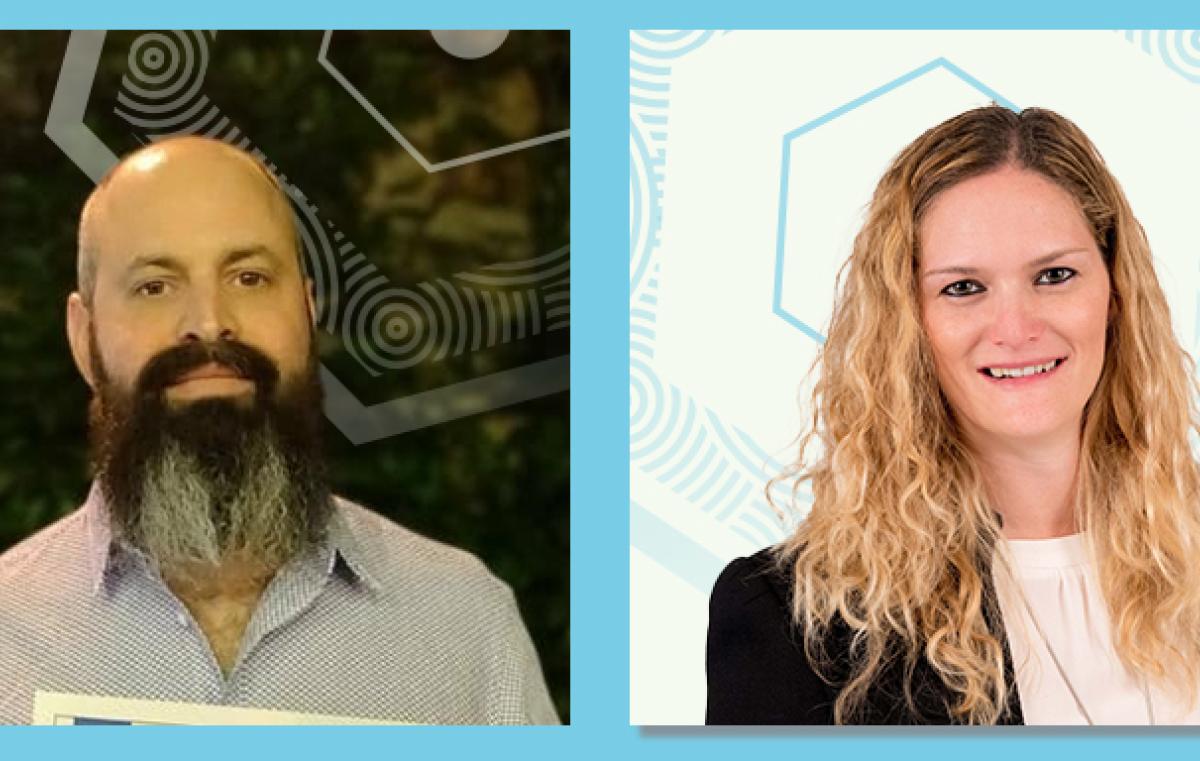One of the studies that won the grant deals with the study of the genes that cause sex reversal, and the other deals with the microbiome and intestinal diseases

The research of Dr. Nitzan Gonen from Life Sciences and Dr. Shai Bell from the Faculty of Medicine in Safed won the prestigious ERC Starting Grant of the European Union with a total value of NIS 12 million. Bar-Ilan Vice President for Research Prof. Shulamit Michaeli, says that this is an expression of confidence of the international system in the extraordinary research done here at Bar-Ilan University.
Dr. Nitzan Gonen, from the Faculty of Life Sciences and the Institute of Nanotechnology in Bar Ilan, won the prestigious ERC Starting Grant of the European Union for her proposal to study the non-coding genome (98% of the genome that does not code for genes) and its involvement in the sex determination process as well as mediation of cases of DSD patients from gender reversal. During the research, testicles will be developed in Dr. Gonen's laboratory in order to investigate infertility and the inability to produce sperm, and this system will also be used to better understand cases of sex reversal. In the future, this system may and will be able to be used to allow the production of sperm in the laboratory and thus allow infertile people the ability to conceive a biological child.
"As of today, we are able to identify the mutation that caused sex reversal in less than 50% of patients following genetic sequencing of all the genes encoded in the genome. Genes are sequences in DNA that make proteins. It is important to understand that our genes make up only about 2% of the total DNA found in each and every cell in our bodies. To date, we have only looked at mutations in genes and many patients do not receive a genetic diagnosis, so we are going to look at the remaining 98% in the genome and understand their involvement in determining sex."

Dr. Shay Bell, from the Faculty of Medicine of Bar-Ilan University in the Galilee, won a grant for his research in the field of determining the mechanisms behind goblet cell dysfunction. Millions of years of evolution have shaped our immune system, allowing it to mount an inflammatory response to virtually any bacteria in our environment. Indeed, the invasion of bacteria into most of our body tissues will cause an inflammatory reaction, which is essential to eliminate the invaders. However, in the gut, the immune system appears to be very tolerant of the trillions of bacteria that colonize it. The reason for this - the intestinal cells secrete a thick mucus that separates the bacteria from the intestinal tissue. This separation makes it possible to benefit from a mutual relationship with the gut bacteria. A study found that in the intestines of patients suffering from inflammatory bowel diseases this mucus barrier becomes permeable by bacteria. This leads to constant contact of these bacteria with our intestinal cells and the activation of an inflammatory response. "In the research, we will try to understand why the mucus barrier breaks down, how it can be cured, and bring these findings to the clinic to induce remission in patients suffering from inflammatory bowel diseases, such as Crohn's disease and ulcerative colitis."
Dr. Shai Bell, graduated from bachelor's degree to doctorate, in the Faculty of Life Sciences at Bar-Ilan University, and joined the Faculty of Medicine in 2018. Dr. Gonen joined Bar Ilan University in 2019 after doing postdoctoral research at the prestigious Francis Crick Institute in London. Dr. Gonen was selected for the list of 40 promising young people under the age of 40 by The Marker magazine for 2020.
More of the topic in Hayadan:

One response
To reduce abdominal distension
And the fat should first of all eat half of what you eat and over the course of months with a little exercise all the fats will drop and then we won't need Komoflush to deceive yourself and those around you